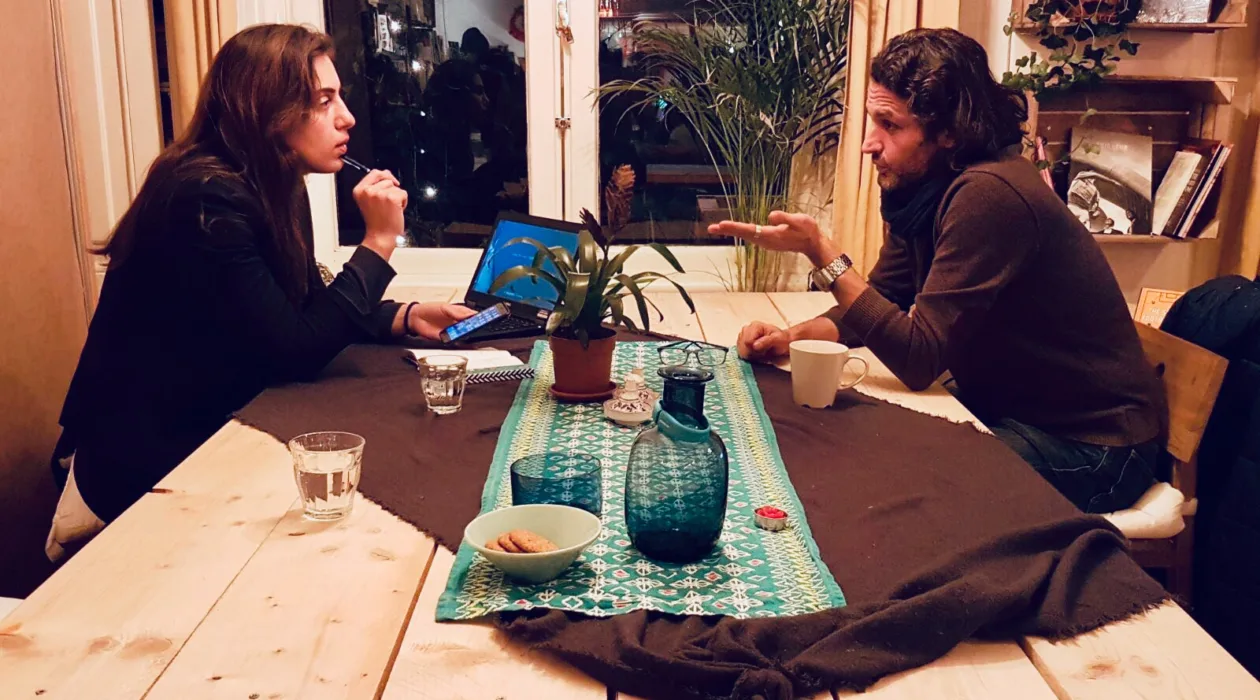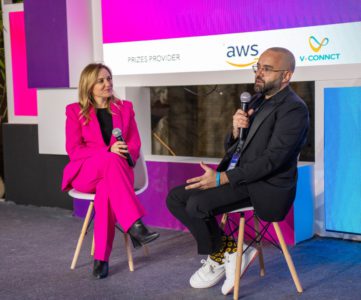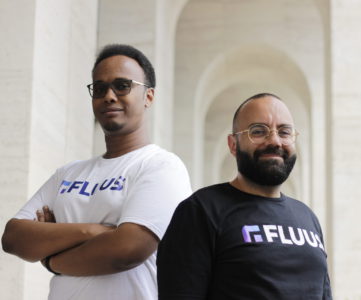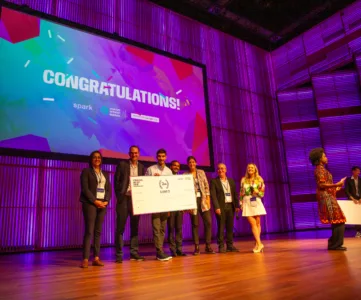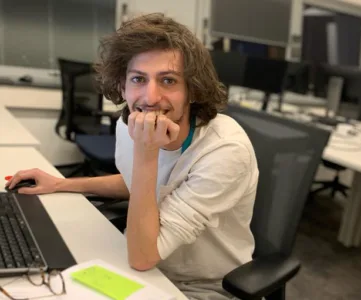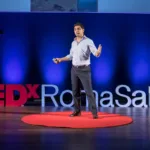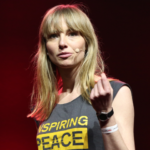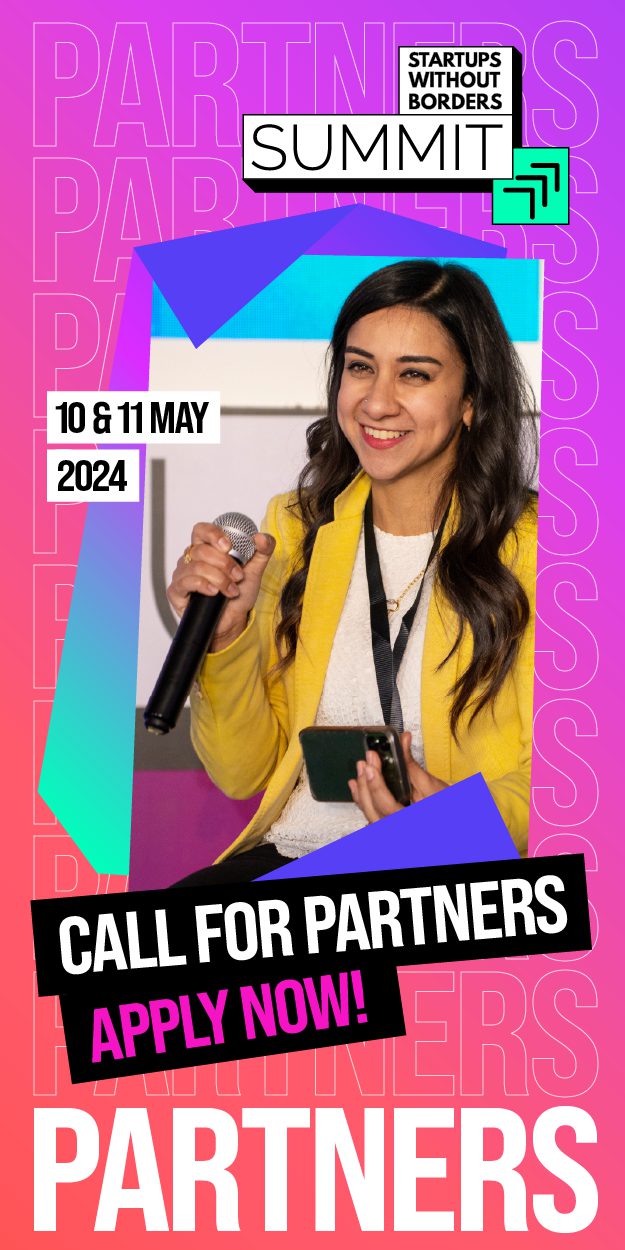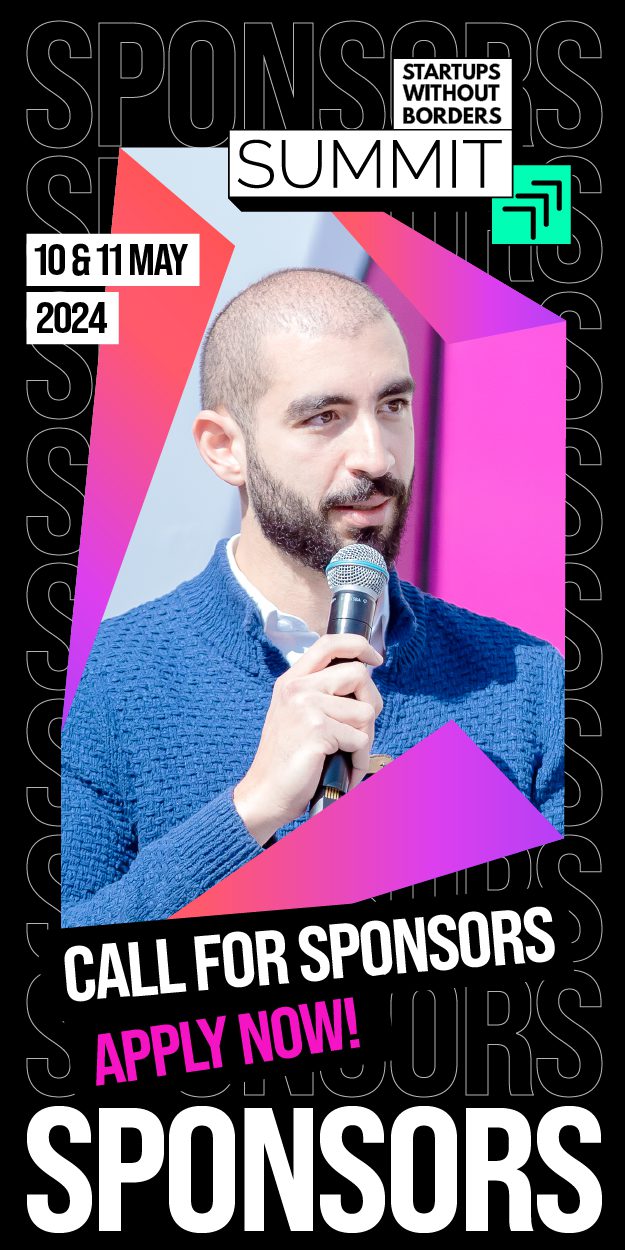Yasmeen Smadi meets the relentless award-winning publisher who brought Arabic literature to the city of canals.
By Yasmeen Smadi
In the heart of Amsterdam, amongst one of its three main canals lined with beautiful old houses, tall trees, and bicycles chained to its bridges, lies a cultural gem: the city’s only Arabic bookstore cafe: Pages. Set in the peace and quiet of The Herengracht, the space is not only a bookstore or a café, but an open, cultural space.
Designed as a place where people from different countries and backgrounds can meet and get to know each other through arts and culture, Pages Bookstore Cafe is a place to enjoy music, literature, theatre or any other form of arts.
You can attend one of the many events and workshops to learn a new skill, like playing the guitar or the Oud, to listen to a book reading, or maybe learn Arabic and add it to the languages you speak. You can also drop by to buy a book, whether its Arabic, English or Dutch. Furthermore, if you are a talented artist and you have some time to spare teaching people something new then it’s also your place to be.
As I walked across bookshelves, I wondered how the cafe’s owner, a Syrian award-winning publisher, had managed to build this cultural Arabic haven; so we sat down for a chat.
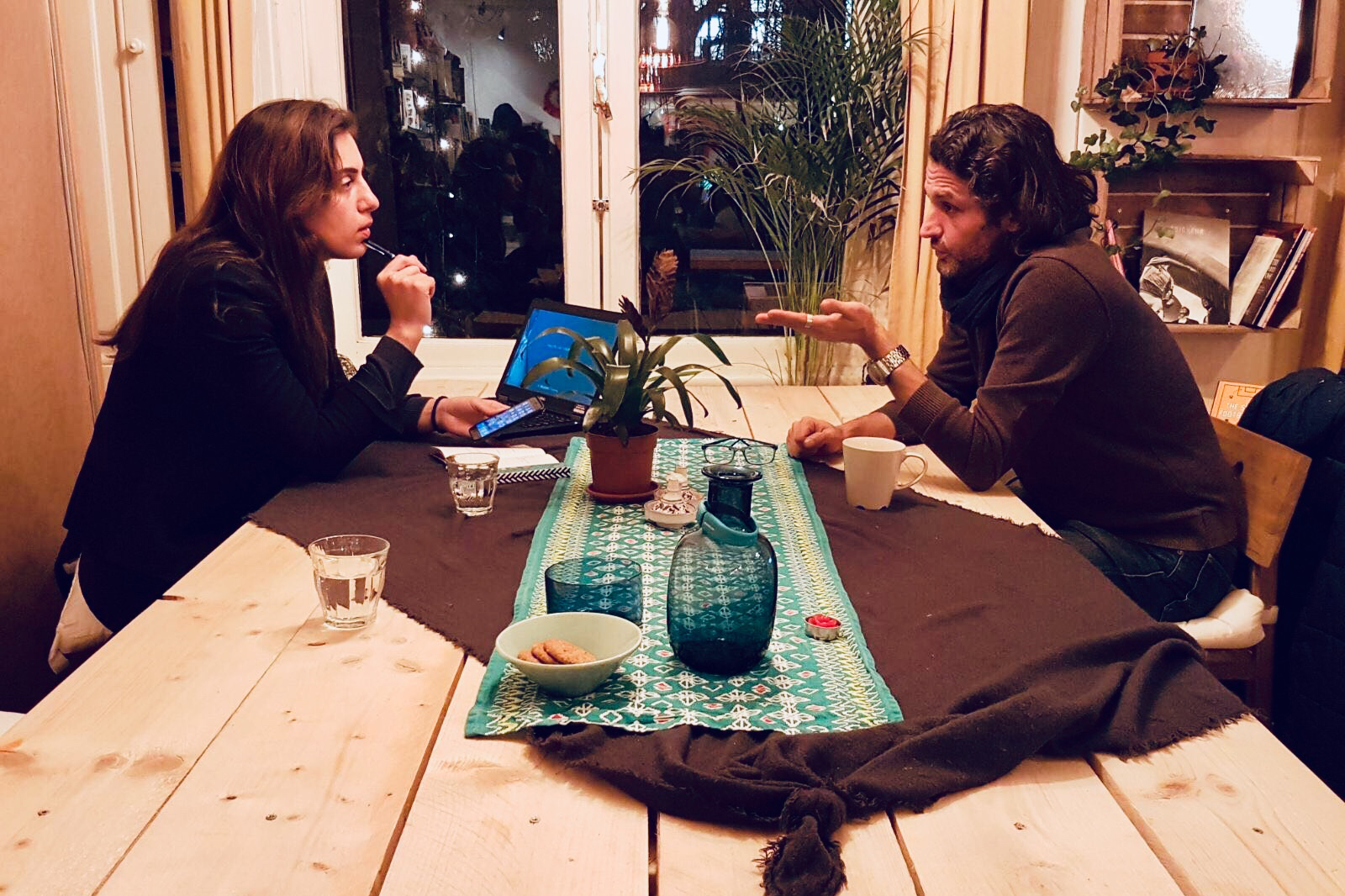
Samer Al-Kadri grew up and lived in Damascus for most of his life, where he founded ‘Bright Finger,’ an award-winning publishing house for children’s books in 2004, along with his wife Gulnar Hajo – who is also an award-winning writer and illustrator. But in 2012, they had to flee Syria and leave everything behind. “I decided to leave a year and 4 months after the start of the Syrian revolution; I was sought after by the government security forces,” says Al-Kadri.
“I was just waiting for the time to go back home. But in the meantime, our publishing house was bombed in one of the Airstrikes.”
Samer fled to Jordan and stayed there for around a year, waiting for the time when he can go back to Syria, which he hoped would be soon. Once he realized that the situation in Syria was not getting better, he decided to go to Istanbul. “I didn’t do anything in Amman; I was just waiting for the time to go back home. But in the meantime, our publishing house was bombed in one of the Airstrikes,” Al-Kadri adds.
What did you do in Istanbul?
We started from zero in Istanbul; I lost everything I had back home, so I had exactly $3,850 when I arrived in Turkey, which isn’t enough to survive for even 1 month in the city. My wife and I started doing some freelance work in graphic design and other things. We also started working in publishing and printing again; we were working from home. The first year in Istanbul was very tough but things got better over time.
In 2013 and after saving some money, I decided to open “Pages” in Istanbul along with 3 of my friends, owning 55% of the business. I managed to reduce the cost as much as possible by building the tables and the shelves myself and getting things at low cost to make the project possible to happen.
What motivated you to start “Pages”?
In my opinion, “Pages” was a necessity, especially in 2013 when the number of Syrian people living in Istanbul wasn’t high yet, so Turkish people didn’t know much about us or our culture. At the same time, there were a lot of youth and exchange students living in Istanbul. So the bookstore café was meant to be a meeting place for people to get together, know each other and learn about different cultures through arts and literature. Also, to foster understanding between people coming from different countries and cultures.
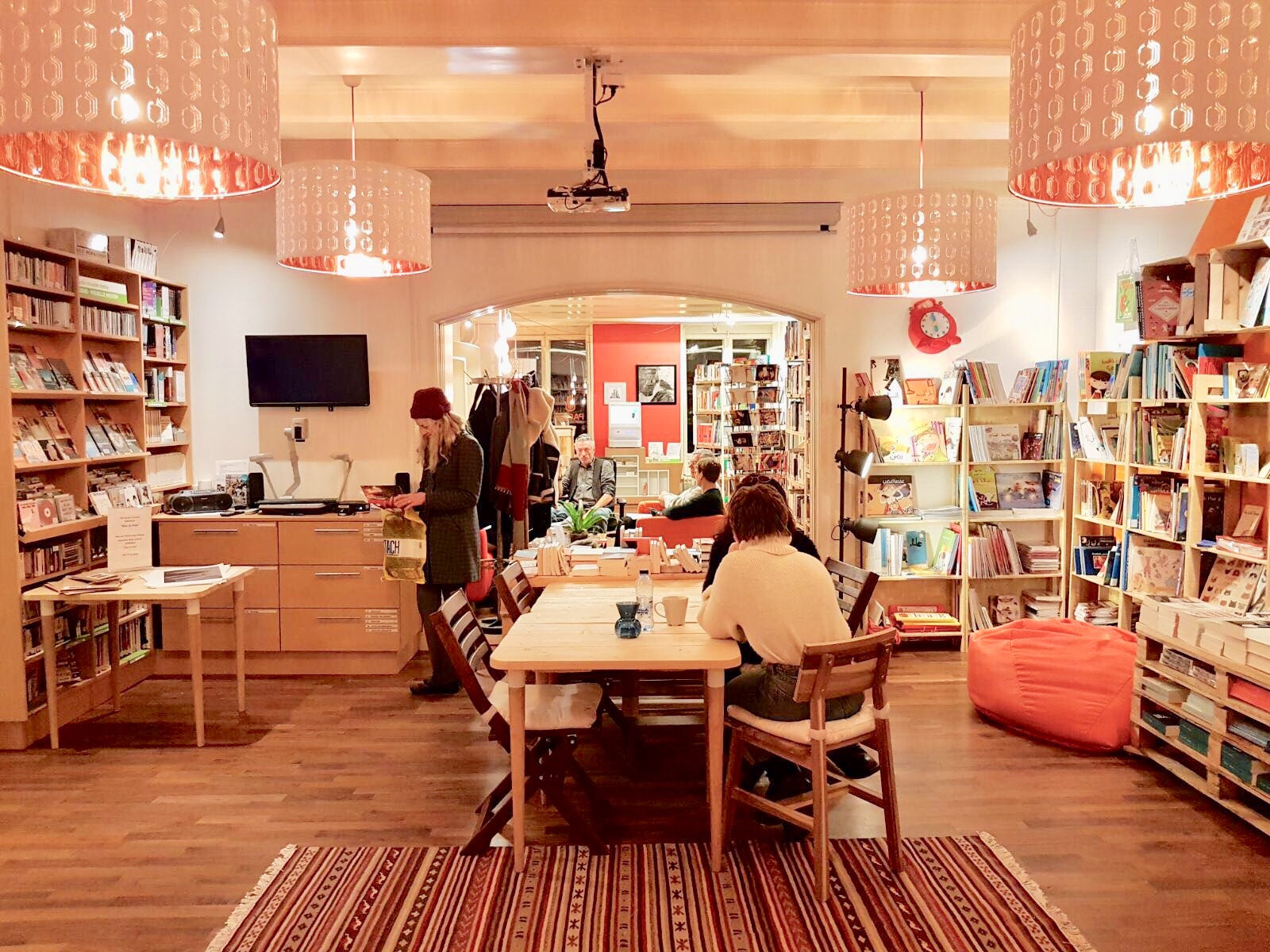
I also believe in the power of a book; books are important and fundamental for learning about other cultures. I’ve never visited Latin America but I feel like I’ve been there and I know everything about the people and their culture, just from reading.
“I believe that culture is an important building block for any country to be rebuilt.”
I believe that culture is an important building block for any country to be rebuilt It is a project amongst many others to help rebuild our country for a better future.
How did people perceive “Pages” in Istanbul?
It grabbed a lot of attention from the media from day one. From the New York Times to the Huffington post to NPR, everyone wanted to visit “Pages” and know more about it.
I wasn’t expecting this much success. At some point, I was doing 6 interviews per day for 7-8 months. I was recognized by some people when walking down the streets of Istanbul as the owner of “Pages”. People knew who I was.
Within two years, we did more than 150 workshops for kids and more than 200 musical events. We had our own theater “Chalks” where we trained people and wrote plays in which participants act and produce. We held guitar and Oud classes and over 60 events for writers from different countries. Everything was offered to the public for free. “Pages” became very well known in Istanbul.
And what brought you to Amsterdam?
I was invited by the Prince Claud Fund to attend their annual Awards ceremony in the Netherlands. As a Syrian living in Turkey, I had to apply for a visa to go back every time I left. So, I applied for a visa from the Netherlands but it was rejected. These things usually take time, so I thought this was what it was all about, but then I applied 2 more times and my visa was rejected each time. Then I realized something wasn’t right.
At the same time, my wife was arrested by the Turkish police and kept in detention for 6 days. The police then let her go, after signing a document stating she had to leave the country within a month. This was a clear message to me that we were no longer welcome in Turkey. So, I applied for asylum in The Netherlands and was granted refugee status in 2017.
My wife was traumatized after the experience she had in Turkey; being arrested by the police; it was a very difficult time for me and my daughters as well.
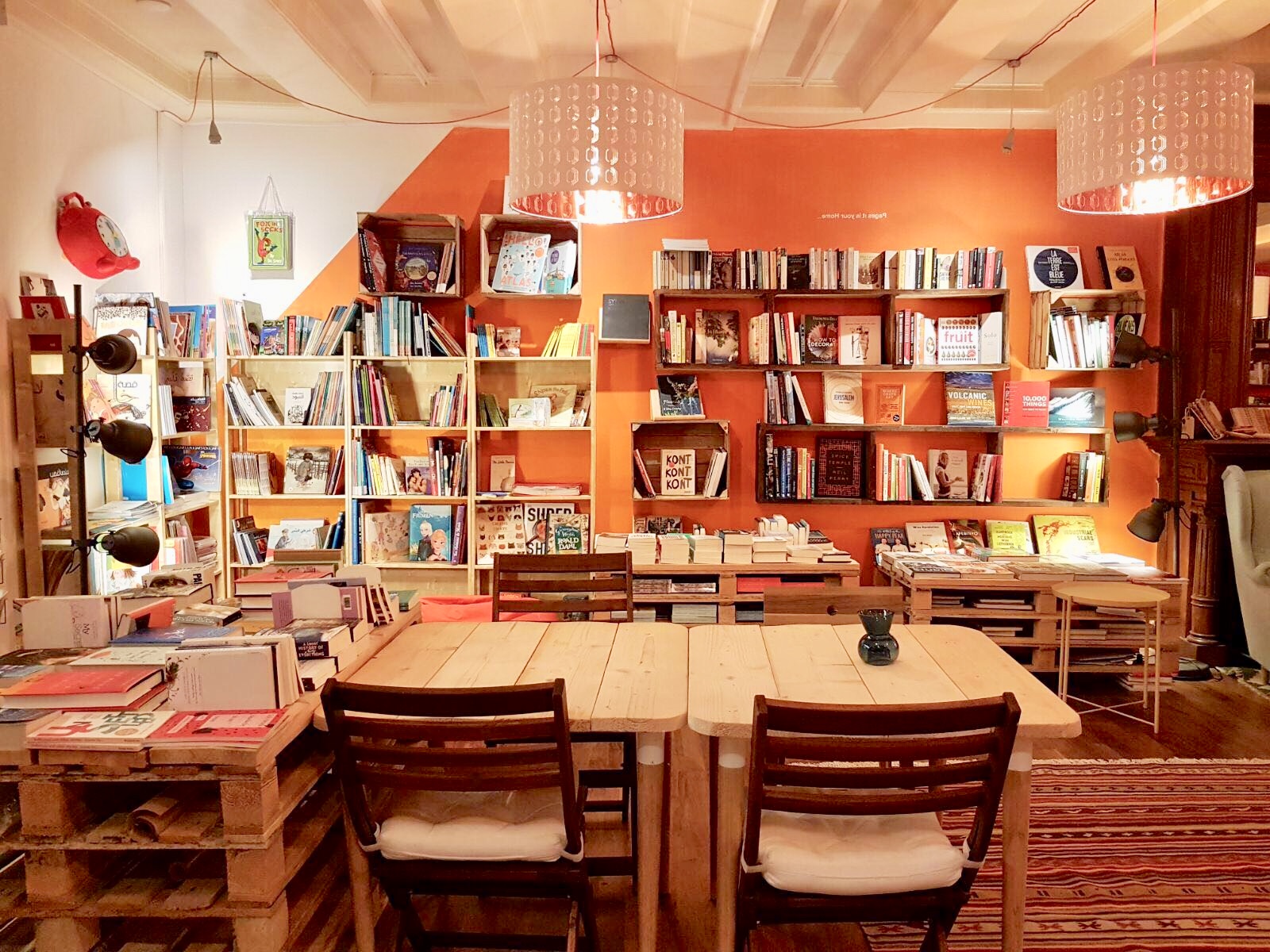
How did “Pages” end up in Amsterdam?
One day, Prince Claus fund invited me to join an event they were hosting to present “Pages” to a group of people. So, I prepared a presentation and told the story of “Pages” to the people who were there. I was offered a place (for free) to establish “Pages” and open the bookstore café in Amsterdam in June 2017.
“Since the opening 4 months ago, 7,000 people have visited the bookstore to attend or participate in different workshops, activities, and events.”
I was so afraid to fail here. But thankfully, it was very well received in Amsterdam. Since the opening 4 months ago, 7,000 people have visited the bookstore to attend or participate in different workshops, activities, and events. “Pages” name is well known in Amsterdam right now. We are doing the same activities we were doing in Istanbul.
What made you follow this path?
I love what I do, I’m passionate about it and I believe in the importance of culture and art and its social impact. When I opened the publishing house in Syria, I sold my house and car to have enough money to start the business, I did this because I believed in the idea. It’s a great satisfaction knowing that my work is affecting people in a positive way and improving their lives in one way or another. I also want to create a cultural understanding between Syrians and people from different parts of the world.
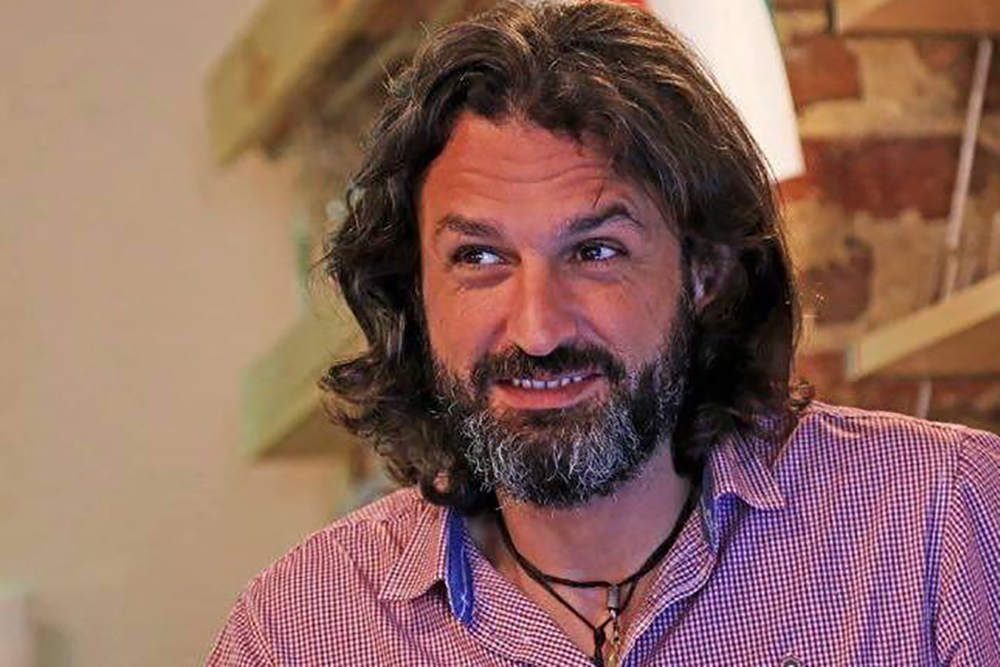
Of course, I also want to make profit and become a very rich man, but being realistic, I know that cultural ventures don’t make a lot of money. It requires a lot of time and effort to keep it going and create a sustainable business.
What are your dreams and aspirations for “Pages”?
I see “Pages” everywhere, I want it to be in every city and reach all people. We are opening “Pages” in Rotterdam in April and then we will open another one in The Hague. We also have plans to go to Berlin next. I would also love to open “Pages” in New York. I like talking about things that I aspire to happen and then see them happening in front of my eyes.
As we focus on children and youth, we are planning to start a competition in The Netherlands in which people can submit stories they wrote and the winner gets their book published and a monetary reward.
“I failed a lot but pulled myself back up. It was difficult and tiring but I’m not sad about it; my adventurous nature keeps me happy.”
Who inspires you?
I was inspired by the book “Zorba The Greek;” I read this book when I was 11 years old. My personality is very similar to Zorba’s in one way or the other, except I am a bit more rational than he is. But this is one of the characters that influenced my life. I am the kind of person that if I believe in an idea, I immediately jump into action and start working on it, regardless if it is successful or not. I failed a lot in my life but pulled myself back up. It was difficult and tiring but I’m not sad about it; my adventurous nature keeps me happy.
What are your regrets?
I don’t have regrets in my life. I only maybe regret knowing some people who were close to me at some point but this is very personal. I am someone who likes trying new things and experimenting, everything we do is an experience in the end. Sometimes it hurts you, but other times it pushes you forward. Sometimes you succeed and sometimes you fail.
What is your perspective on the refugees Syrian Community in The Netherlands?
Generally speaking, our governments have always taught us to be individualistic and to take care of ourselves and mind our own business. Syrians don’t support each other, they fear each other and don’t trust one another. At the beginning of the revolution, Syrians were brought closer together and they became more trusting. But we suffered for 7 years, which is a very long period for one nation to be suffering on daily basis. We went through phases and I believe that now we are disconnected.
Syrians outside Syria still suffer from all the news they hear every day and it is destructive. I see this as a normal phenomenon. The Syrian community in Turkey is unified but I haven’t seen a united Syrian community in Europe yet. Everybody just wants to stop feeling bad about what is happening in Syria; they just want to focus on their lives individually.
Do you have any advice or tips for refugee entrepreneurs who want to start a business?
I believe Syrians are very active in the community as soon as they settle in a new country. Most of them start working immediately; they either start their own business or find a job. Others continue their education or learn something new.
“I believe Syrians are very active in the community as soon as they settle in a new country. Most of them start working immediately.”
To start a business, I believe you should be passionate and willing to give it all your time and put so much effort into it, keep working all the time and never give up. I work 7 days a week, every week for at least 14 hours a day.
I also believe in creating a business that can be sustained even after the founder leaves for any reason; businesses shouldn’t rely on one person only. It should be built in a way that it continues long after the founder is gone.
Being a bookstore owner, what are your favorite books?
Those would be “Zorba The Greek” by Nikos Kazantzakis and “The Shell” by Mustafa Khalifa.
Do you have a favorite quote?
I don’t believe in quotes as I don’t think that there is a saying that applies to all times and every period. Your own experience teaches you everything and every day you learn something new. I believe in humanity; humans can build something beautiful or be a tool of destruction. It’s a choice in the end.
Photography by Robert Dunsmore.
Main photo: Courtesy of Samer Al Kadry.

